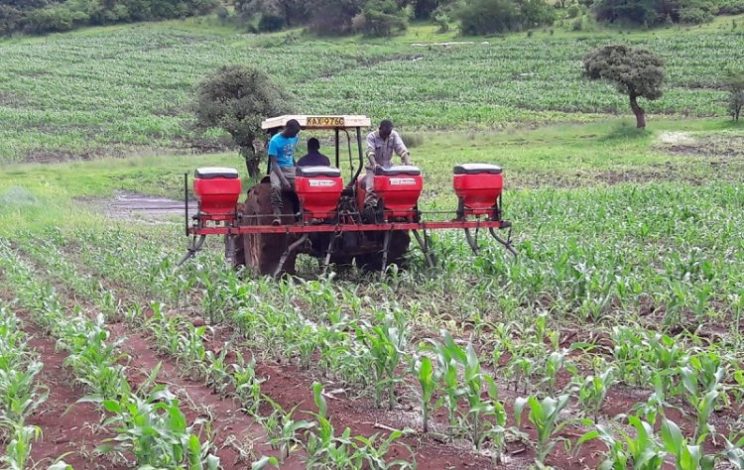Kenya’s smallholder agriculture accounts for up to 90 per cent of agricultural output in Africa and is usually dominated by primary production, according to the Agricultural Fund for Agricultural Development (AFAD).
Most small-scale farmers produce only for subsistence use and sell the small surplus in raw forms.
This has consequently translated to low market prices, fewer job opportunities, and low income for most farmers, which have been attributed to inadequate adoption of new technologies, a lack of managerial and technical skills to effectively manage an agribusiness, and poor market orientation, networking, and market information.
Smallholder farmers must also have technical skills in food processing, quality and standards control, and marketing to create a dynamic and competitive agribusiness environment.
Here are five major things that can help smallholder farmers improve the quantity and quality of their products and earnings.
Training
Most farmers, especially in rural areas, need more information about better and improved ways to work efficiently and economically grow food.
Accessing training that improves their knowledge of up-to-date techniques and technologies, how to handle them and providing them with the necessary physical resources will automatically double up their produce.
Training can be provided by agricultural extension officers or anybody responsible for delivering the same.
Business plan development
Most smallholder farmers need a clear business plan when venturing into farming because they feel they are limited to produce only for subsistence.
With the assistance of agricultural extension officers, they can be guided on how to develop a plan that will assist them in successfully implementing and earning from their projects.
Promoting the formation of farmers’ groups
Farmers’ groups are increasingly being formed across the country, and smallholder farmers have been encouraged to join.
The smallholder groups enable the farmers to market and maximize their output tactfully.
Farmer Education programs
Educating the farmers on better ways of farming, such as fertilizer application, seedling care, and irrigation methods, as well as learning about the seasons, will increase their knowledge of sustainable agriculture.
Moreover, the farmers will learn how to balance subsistence and commercial farming.
Consequently, there will be an increase in local food production, income, and sustainability of agricultural practices.
Providing market information conveniently
A report by the Agricultural Fund for Agricultural Development (IFAD) shows that smallholder farmers in Africa are impoverished due to poor product market information.
According to the report, up to 85 per cent of the farmers are not connected to lucrative markets at provincial, national and global levels and hence end up practising subsistence farming and selling their produce at the local markets.
Sensitive farming and market information can be dispatched through various means, such as mobile phones.
This can be done via voice services, USSD codes, or even online for farmers in areas where there is a stable internet connection.



